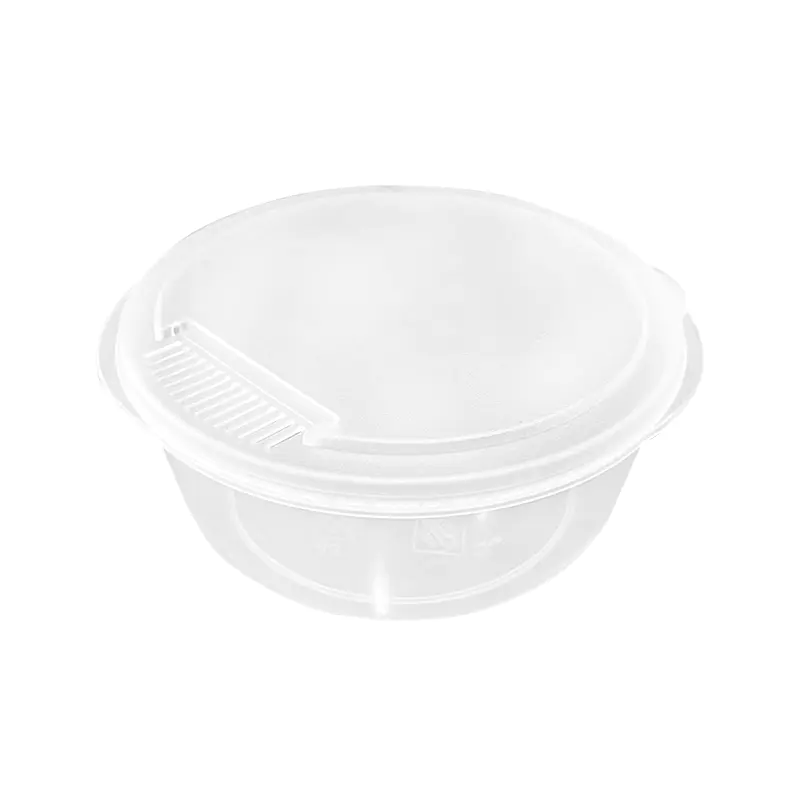The Plastic Thin Space Cup Mould represents an innovation in the manufacturing o...
-

+86-15068654601
-

No.62 Zhao Feng Road, Huangyan, Taizhou, Zhejiang, China

+86-15068654601

No.62 Zhao Feng Road, Huangyan, Taizhou, Zhejiang, China
In the injection moulding process, plastic pellets or granules are fed into a heated barrel, where they melt and are injected into the mould cavity under high pressure. The plastic is then cooled and solidified into the shape of the container. After cooling, the mould opens, and the finished container is ejected. The precision and quality of the mould directly impact the consistency, strength, and appearance of the final product.

A used plastic food container mould refers to a mould that has been previously used in the production of plastic containers but is still in good condition and capable of producing high-quality products. Purchasing used moulds can be a cost-effective solution for businesses looking to produce plastic containers without investing in new moulds, which can be expensive.
Used moulds are commonly sold by companies that specialize in mould refurbishment or by businesses upgrading their production equipment. These moulds are typically inspected, cleaned, and reconditioned to ensure they meet the required standards for continued use in the production process.
Opting for used plastic food container moulds offers several benefits, particularly for small and medium-sized enterprises (SMEs) or businesses looking to diversify their product offerings without incurring substantial upfront costs. Some of the main advantages include:
Cost-Effectiveness: The significant benefit of purchasing used moulds is the lower cost. New plastic food container moulds can be expensive due to the cost of materials and the complexity of their design. Used moulds, on the other hand, are often sold at a fraction of the price of new ones, allowing companies to produce containers at a more affordable rate.
Faster Turnaround: Since used moulds have already been fabricated, they are typically available for immediate use. This can significantly reduce the lead time required to start production compared to waiting for the manufacturing of a new mould. Businesses can quickly implement these moulds into their existing production lines, faster delivery times for their products.
Proven Performance: Used moulds have a history of production, meaning they have been tested and proven to work. When refurbished properly, these moulds are often just as reliable as new ones. Businesses can often verify the performance and durability of a used mould before purchasing, ensuring it meets their production requirements.
Sustainability: The use of used moulds contributes to sustainability efforts by reducing waste. Instead of discarding moulds after they reach the end of their lifecycle, they can be reconditioned and put back into circulation. This aligns with eco-friendly practices by reusing valuable manufacturing equipment.
Customization: Used plastic food container moulds can often be modified or customized to suit specific needs. If a business needs a particular container shape or size, the mould can be refurbished or adjusted to meet those requirements without the need to create an entirely new design from scratch.
While used plastic food container moulds offer several benefits, there are also important considerations to keep in mind to ensure that the mould will continue to perform effectively in your production process. Below are some factors to consider when choosing a used mould for food container manufacturing:
Condition of the Mould: The primary factor when purchasing a used mould is its condition. A used mould must be thoroughly inspected for wear and tear, including any cracks, rust, or signs of damage. Refurbishing and maintaining moulds properly can extend their lifespan, but it is essential to ensure that the used mould is in good working order before use.
Type of Plastic: Different types of plastics require different moulds. For food container moulds, the plastic commonly used is polyethylene terephthalate (PET), which is popular for its strength and recyclability. However, other plastics like polypropylene (PP) or polystyrene (PS) are also used. It's important to ensure that the used mould is compatible with the type of plastic you plan to use for your containers.